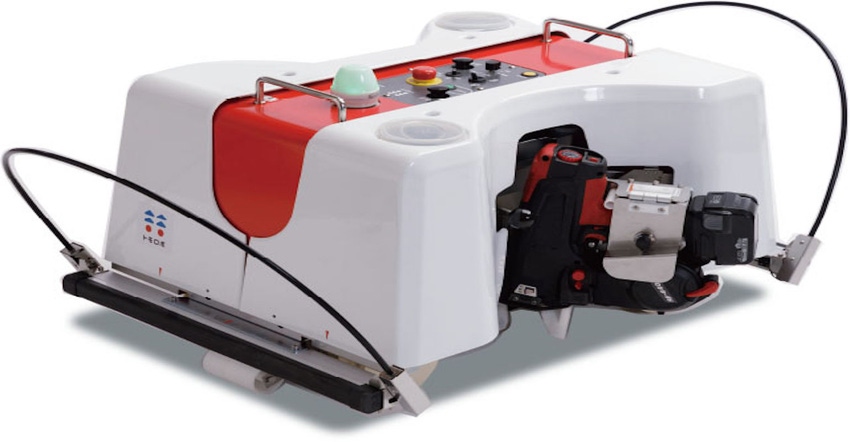A labor shortage of construction workers has become a global problem but one Japanese company thinks their new robotics innovations can help address the issue with robots that perform tedious, repetitive tasks like tying rebar.

The labor shortage has been a global problem in developed countries but one Japanese company believes automation can help address the problem.
The company is Ken Robotech and they’re responsible for an innovative robot called Rebar Tying Tomoboro, which is automated to tie rebar with commercially available handheld tools.
“It frees on-site workers from tedious repetitive tasks and allows them to focus on work that requires more advanced skills,” according to the company’s website.
Ken Robotech displayed the Rebar Tying Tomoboro, which first began sales in 2020, at World of Concrete in Las Vegas, where attendees looked on as the machine demonstrated how it would tie rebar on a worksite.
They company’s CEO, Tatsuya Manabe, used to work on a construction site tying rebar himself.
“I thought this type of work shouldn’t be done by man,” Manabe said. “By letting a robot do this type of work, a worker can do something more so that total productivity can be increased.”
According to the company, the availability of construction workers in Japan is decreasing significantly and a worker shortage of 1.3 million is expected by 2025.
The company produces two versions of the automated rebar tying robot. The standard version, the Rebar Tying Tomoboro, ties rebar with diameters of 10-16 millimeters. The company also makes the Large Diameter Tying Tomoboro, which ties rebar with diameters between 19 and 29 millimeters.
The company’s website explained that the robots tie the intersections of rebars on dirt floors or slabs and claimed the robot takes only 2.7 seconds to tie a location.
“It senses intersections of rebars as it goes along and automatically adapts to changes in pitch,” the website stated. “Furthermore, it senses intersections even if there are variances in height or angles and ties them securely.”
The robot is controlled by a remote controller, which allows options to tie rebar at all intersections, every other intersection or every three intersections.
Other rebar tying machines, like the TyBOT Rebar Tying Robot from Advanced Construction Robotics, have been historically larger machines and are used at various construction sites. The TyBOT Rebar Tying Robot, which can tie 1,100 intersections per hour according to the manufacturer’s website, self-locates and self-positions.
Whatever form the robots come in, Manabe said we should expect robotics more and more at construction sites in the future.
About the Author(s)
You May Also Like




